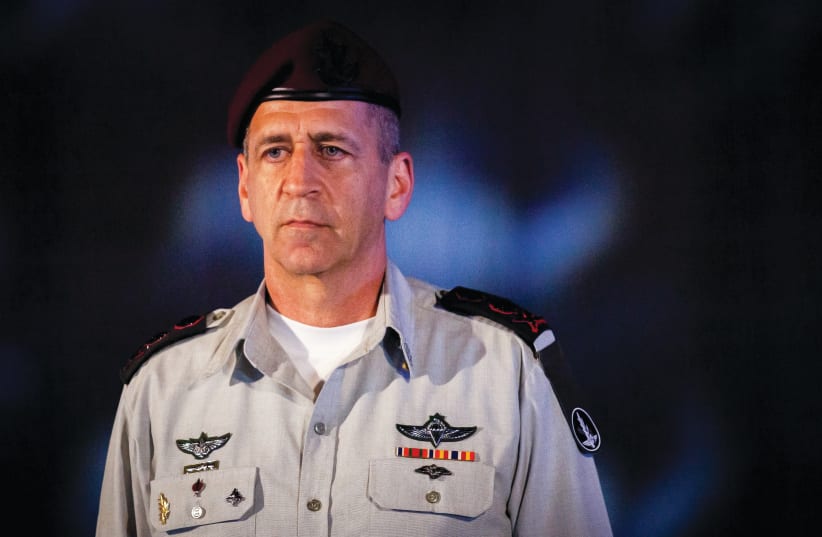IDF Chief of Staff Lt.-Gen. Aviv Kohavi will fly to Washington on Sunday and discuss a range of regional challenges with his American counterparts, more than a month after he was set to go to discuss the Iranian threat and other regional challenges.
It will be the first trip by an Israeli official with Prime Minister Naftali Bennett leading the government. Kohavi will meet with Bennett ahead of his trip. They worked closely together during Bennett’s time as defense minister, and both are considered to be hawks on the Iran.
Kohavi is expected to attempt to persuade the Americans not to reenter the Iranian nuclear deal.
During the four-day visit Kohavi will hold working meetings with Secretary of Defense Lloyd Austin, National Security Adviser Jake Sullivan, Chairman of the Joint Chiefs of Staff Mark Milley, head of the US Central Command Gen. Kenneth McKenzie, and head of the US Special Operations Command (SOCOM) Gen. Richard Clark.
During his trip, which will be his first as Israel’s top military officer, he will meet with his American counterparts to discuss common security challenges in the region, including issues related to the threat posed by the Iranian nuclear project, Tehran’s attempt to entrench itself in the Middle East, Hezbollah’s force-buildup efforts, and the implications of the Lebanese terror group’s precision missile project.
Kohavi will discuss joint force building with the United States and meet with leading think tanks and decision makers “as part of an ongoing international media and public diplomacy effort” that the IDF has been carrying out since the end of Operation Guardian of the Walls.
The visit to Washington that was scheduled to take place in April was postponed due to the conflict with Hamas and Palestinian Islamic Jihad in the Gaza Strip.
Kohavi will also present the main points of the IDF’s operational activities during the 11 days of fighting, with an “emphasis on the adjustments that took place during the operation “in the context of fire capabilities, accurate intelligence, digital and joint digital interoperability, ” the IDF Spokesperson’s Unit said.
The visit takes place after the decision to transfer Israel to CENTCOM’s area of responsibility and McKenzie’s visit to Israel last January.
“This visit is another step in strengthening the bond and increasing cooperation between the armies,” the IDF said, adding that “over the past few years, many collaborations have been built and the operational ties strengthened, and a series of additional collaborations will be discussed as part of the trip.”
The chief of staff will be accompanied by his wife, Mrs. Yael Kohavi, and the IDF attaché in Washington, Maj.-Gen. Yehuda Fox.
The Head of the Strategy and Third-Circle Directorate, Maj.-Gen. Tal Kalman and the Head of the Research Division Brig.Gen. Amit Saar will also join Kohavi on the visit and will hold additional meetings with senior members of the US defense establishment.
The Deputy Chief of Staff, Maj.-Gen. Eyal Zamir, will replace Kohavi in his absence.
Two weeks ago, Defense Minister Benny Gantz flew to Washington and met with the same officials to discuss the same topics. At the meetings, he spoke about the need to change policy in the Gaza Strip, the need to strengthen the alliance of moderates and the Palestinian Authority and the issue of returning the fallen soldiers and citizens held by Hamas in the Gaza Strip as a moral and humanitarian value.
Gantz also spoke about the need to increase supervision of Iran and stop its regional aggression, adding that Israel would have to prepare a military option.
Prior to his meeting with Austin, Gantz stressed the need to stop Iran’s nuclear program.
Stopping Iran “is certainly a shared strategic need of the United States, Europe, the countries in the Middle East and Israel, and for the people of Iran as well,” he said, adding that “of course, given the scope of the threat, Israel must always make sure that it has the ability to protect itself.”
